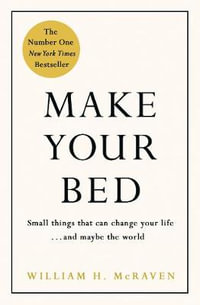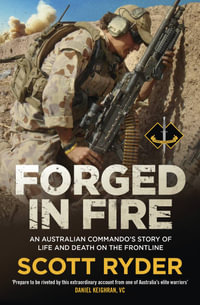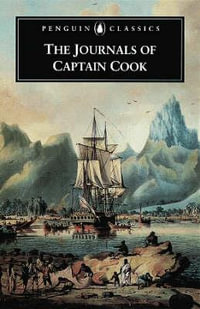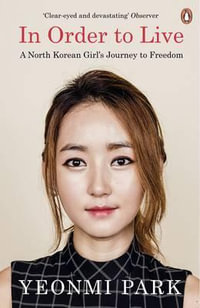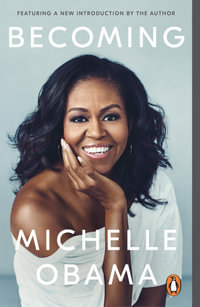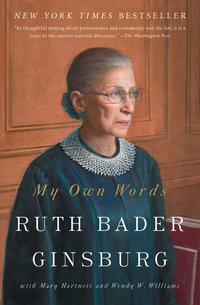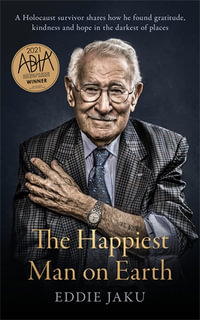
Conversations with Myself
Foreword by President Barak Obama
By: Nelson Mandela, Barack Obama (Foreword by)
Hardcover | 11 October 2010
Sorry, we are not able to source the book you are looking for right now.
We did a search for other books with a similar title, however there were no matches. You can try selecting from a similar category, click on the author's name, or use the search box above to find your book.
Conversations with Myself draws on Mandela's personal archive of never-before-seen materials to offer unique access to the inner world of an incomparable world leader. Journals kept on the run during the anti-apartheid struggle of the early 1960s; diaries and draft letters written on Robben Island and in other South African prisons during his twenty-seven years of incarceration; notebooks from the post-apartheid transition; private recorded conversations; speeches and correspondence written during his presidency – a historic collection of documents archived at the Nelson Mandela Foundation is brought together in a sweeping narrative of great immediacy and stunning power.
An intimate journey from Mandela's first stirrings of political conscience to his galvanizing role on the world stage, Conversations with Myself illuminates a heroic life forged on the front lines of the struggle for freedom and justice.
While other books have recounted Mandela's life from the vantage of the present, Conversations with Myself allows for the first time unhindered insight into the human side of the icon.
About The Author
Nelson Mandela was born in Transkei, South Africa on 18 July 1918. He joined the African National Congress in 1944 and was engaged in resistance against the ruling National Party's apartheid policies for many years before being arrested in August 1962. Mandela was incarcerated for over twenty-seven years, during which his reputation as a potent symbol of resistance to the anti-apartheid movement grew steadily. Released from prison in 1990, Mandela won the Nobel Peace Prize in 1993 and was inaugurated as the first democratically elected president of South Africa in 1994. He is the author of the international bestseller Long Walk to Freedom.
Industry Reviews
"Outstanding for what it offers. . . Its collection of letters and meditations, together with its thorough index and appendix, belongs on the shelf of anyone interested in the nature of power and resistance." --J.M. Ledgard, The New York Times Review of Books This book will reduce the reader to both rapture and tears. "Alec Russell, Financial Times"
Outstanding for what it offers. . . Its collection of letters and meditations, together with its thorough index and appendix, belongs on the shelf of anyone interested in the nature of power and resistance. "J.M. Ledgard, The New York Times Review of Books""
Farrar, Straus & Giroux Reading Group Guide
Conversations with Myself
By Nelson Mandela
Foreword by President Barack Obama
Hardcover ISBN: 978-0-374-12895-1
A little more than two decades after I made my first foray into political life and the divestment movement as a college student in California, I stood in Mandela s former cell in Robben Island. I was a newly elected United States Senator. By then, the cell had been transformed from a prison to a monument to the sacrifice that was made by so many on behalf of South Africa s peaceful transformation. Standing there in that cell, I tried to transport myself back to those days when President Mandela was still Prisoner 466/64 a time when the success of his struggle was by no means a certainty. I tried to imagine Mandela the legend who had changed history as Mandela the man who had sacrificed so much for change. Conversations with Myself does the world an extraordinary service in giving us that picture of Mandela the man. FROM THE FOREWORD BY PRESIDENT BARACK OBAMA
Introduction
Nelson Mandela is one of the most inspiring icons of our time; numerous biographies, and his own autobiography, have traced his extraordinary journey as South Africa s liberator. But his legendary status has also obscured many of the important truths about the events leading up to his twenty-seven-year imprisonment and its effects on his family and on the other members of the African National Congress who joined him in the fight for freedom. A landmark collection of diary entries, drafts of letters, handwritten notebook passages, interview transcripts, presidential speeches delivered in his post-apartheid homeland, and other enlightening artifacts, Conversations with Myself at last captures the realities of Mandela s mission as it was unfolding. Showcasing a trove of historic, never-before-published documents recently bestowed on the Nelson Mandela Foundation, Conversations with Myself lets us hear from the great statesman at key moments in his life, including recollections of his career as an attorney and politician during the 1940s, when he launched a calculated grassroots effort to bring down the Goliath of apartheid, not knowing where fate would take him. The book concludes with a rare and provocative glimpse of Mandela s reflections on the subsequent struggles of building peace and reconciliation after his release from prison in 1990.
Revealing Mandela s inner life, Conversations with Myself allows readers to interpret for themselves the eloquent words and pivotal thought processes that made history well beyond South Africa. We hope that the following questions and discussion topics will enrich your own dialogues about Mandela s singular legacy.
Questions for Discussion
1. In the book s epigraph, Nelson Mandela writes to Winnie and describes the benefits of regular self-assessment, reminding her that a saint is a sinner who keeps on trying. How did this mindset foster success for Mandela and his followers? How could this epigraph help you in your own endeavors for change in your community?
2. As Mandela reflected on childhood, what aspects of his education surprised you? How was he shaped by his varied role models, including tribal elders (the paramount chief in particular), traditional classroom teachers, and Christian leaders such as Reverend Matyolo? As a multilingual child, what insight was Rolihlahla Mandela (as his parents named him) able to gain?
3. Discuss the book s title. In diaries, notebooks, and other conversations on the page, what has Mandela told himself throughout his life? What inner conflicts has he struggled with continually?
4. Though Mandela originally advocated non-violent civil disobedience, by the early 1960s he stated that the government was giving the ANC no choice but to arm itself. How did Mandela s definition of a successful revolution evolve throughout the pages of Conversations with Myself? How did the ANC s tactics compare with those of Martin Luther King, Jr., Malcolm X, and other figures in America s civil rights movement?
5. What do Mandela s draft letters reveal about his leadership style? Why was it important to him that ANC leaders not be his puppets? How did he inspire himself to overcome discouragement, even as Botha s cruelty escalated?
6. How did you react to reading archival material? What is the benefit of seeing Mandela s handwriting and unedited words, written for a variety of audiences? What does an archive teach us that other forms of historical research cannot? Are diaries and notebooks more reliable than an interview transcript (the conversations with Richard Stengel, in this case) or a polished memoir?
7. Mandela s writings allude to the history of South Africa s complex, brutal Anglo-Boer wars, in which the English suppressed uprisings on the part of Dutch, German, Flemish, and French settlers (collectively known as Boers, the Dutch word for farmer). What sense of national identity did Mandela have in the aftermath of this history?
8. Mandela describes the effects of the proliferating apartheid laws during the 1940s and 1950s. From his point of view, what enabled the descendants of Europeans, who were in the minority in South Africa, to hold such power and apply such crushing legislation to those with African ancestry, who were in the majority? What social and psychological tactics did Mandela experience in the courtroom, at home, and in other facets of his life as the government attempted to subdue non-whites? How did these tactics ultimately lead to the National Party s downfall?
9. Conversations with Myself captures the author s vast knowledge of literature, particularly Greek tragedy (Antigone) and Shakespeare. How does Mandela bridge his love for European literary lions and his desire to preserve African cultural history? What does this say about the universal power of storytelling and literature?
10. What portraits of Mandela s life as a husband and father emerge in Conversations with Myself? What transitions in his sense of self are reflected in his first marriage (to Evelyn Mase), his later marriage to Winnie, and eventually life without her? What did it take for him to sustain a relationship with his family despite being confined to a cell, even when they faced the death of the family s youngest members?
11. The book s project leader, Verne Harris, tells us in his introduction that the form of Conversations with Myself is inspired most directly by Marcus Aurelius s Meditations. What milestones are reflected in the book s four-part structure: Pastoral, Drama, Epic, Tragicomedy ?
12. Ultimately, what was Mandela fighting for, beyond the end of apartheid? Were the roots of racism in South Africa purely economic?
13. Does reading about Mandela s experience as a political prisoner help you define human rights in a new way? What details of Mandela s imprisonment will be the hardest for you to forget? (Observer )
14. In many ways, Mandela s international fame, leading to calls for businesses, universities, and other organizations around the world to divest from South Africa, helped lead F. W. de Klerk to free Mandela and end apartheid. What did you discover about Mandela s fame while reading the names of his many visitors? What price has Mandela paid for being imprisoned by fame in the years after his release? (Peter Parker, Sunday Times )
15. Discuss the significance of the book s foreword. Does President Barack Obama echo former president Nelson Mandela, or does he represent a very new perspective on human rights in the twenty-first century? (Independent on Sunday )
About the Author
NELSON MANDELA was born in Transkei, South Africa, on July 18, 1918. He joined the African National Congress in 1944 and was engaged in resistance against the ruling National Party s apartheid policies after 1948. He was incarcerated at Robben Island prison from 1964 to 1982 and then at Pollsmoor Prison, and during these years his reputation as a potent symbol of resistance to apartheid grew steadily. Released from prison in 1990, Mandela was awarded the Nobel Peace Prize in 1993 and was inaugurated as the first democratically elected president of South Africa in 1994. He is the author of the international bestseller Long Walk to Freedom.
Reading Group Guide written by Amy Root / Amy Root s Wordshop, Inc.
ISBN: 9780374128951
ISBN-10: 0374128952
Published: 11th October 2010
Format: Hardcover
Language: English
Number of Pages: 480
Audience: General Adult
Publisher: FARRAR STRAUSS & GIROUX
Country of Publication: US
Dimensions (cm): 24.77 x 16.51 x 4.45
Weight (kg): 0.73
Shipping
| Standard Shipping | Express Shipping | |
|---|---|---|
| Metro postcodes: | $9.99 | $14.95 |
| Regional postcodes: | $9.99 | $14.95 |
| Rural postcodes: | $9.99 | $14.95 |
How to return your order
At Booktopia, we offer hassle-free returns in accordance with our returns policy. If you wish to return an item, please get in touch with Booktopia Customer Care.
Additional postage charges may be applicable.
Defective items
If there is a problem with any of the items received for your order then the Booktopia Customer Care team is ready to assist you.
For more info please visit our Help Centre.
You Can Find This Book In
This product is categorised by
- Non-FictionPolitics & GovernmentPolitical Structure & ProcessesPolitical Leaders & Leadership
- Non-FictionPolitics & GovernmentPolitical Control & FreedomsHuman RightsCivil Rights & Citizenship
- Non-FictionBiographies & True Stories BiographiesHistorical, Political and Military BiographiesHistorical, Political and Military Autobiographies



